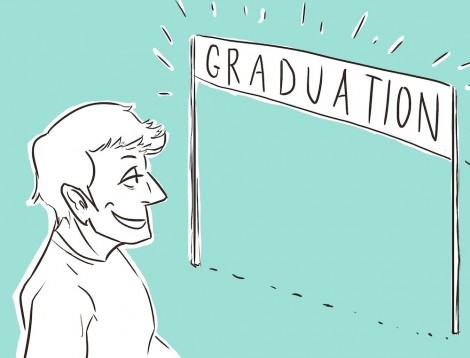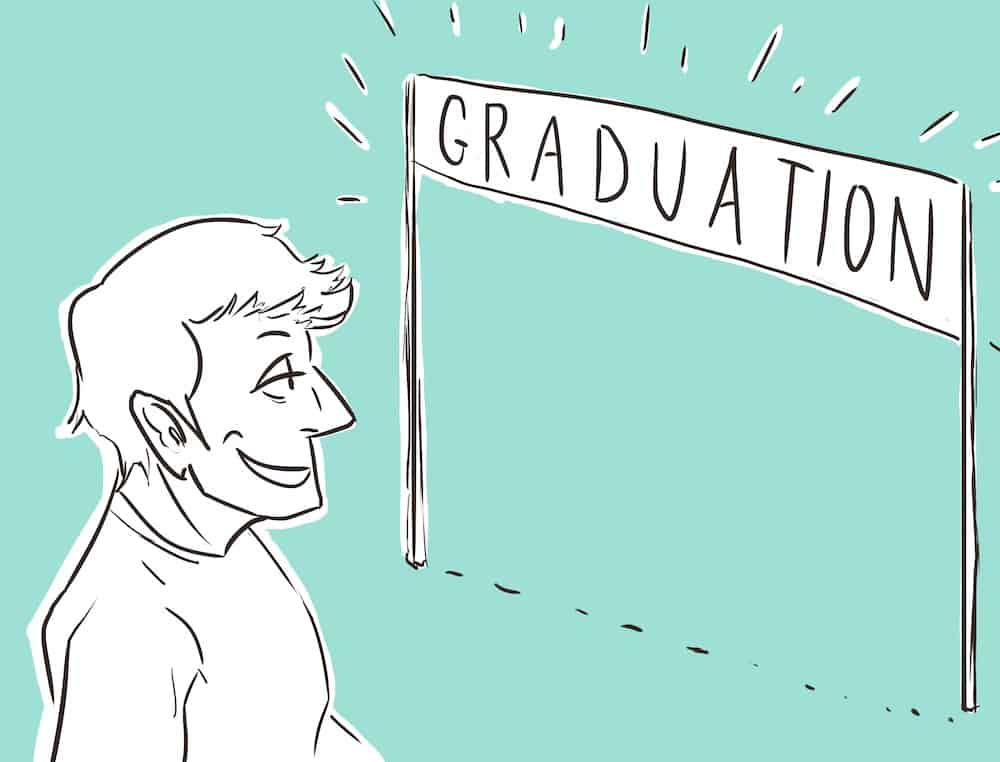Most of my graduating friends seem to fall into one of three schools of thought about their future plans after undergrad: professional school, graduate school, or “taking a year to figure things out.” The apparent growing trend of fifth-year undergraduates at U of T highlights the indecision many seniors feel on campus. Future prospects seem only to point to further schooling for many. What schooling this will entail seems to be the question many graduates are left ill-equipped to answer.

JULIEN BALBONTIN/THE VARSITY
Currently, the academic trajectory for students studying in the Faculty of Arts & Science — similar to that of other institutions — is the pyramid. The logic is that after three years of marginally smaller lecture classes, it pays off in fourth-year intensive seminar courses typically related to your professor’s narrow research expertise.
Unfortunately, the expectation that fourth-year students should bury themselves in further academia and longer reading lists is not helpful or reflective of the reality that exists for the majority of graduating students. Whether one is looking to further their studies or find gainful employment, the current model seems to be doing a disservice.
For students planning to attend graduate schools in their chosen field, the earliness of many applications means fourth-year seminars come too late. After three years of large lecture classes, many students are left unable to build the relationships needed for strong references. Their lateness also means they can only reinforce the decision students have already made, or turn students off furthering their studies at the graduate level.
More critically, requiring fourth-year students to further commit to their studies is ignorant of the reality facing soon-to-be graduates. Profiling the typical fourth-year class, many students have largely disengaged from their field of study. Having realized that their knowledge of post-colonial literature will soon be of little use, many students prioritize part-time jobs, internships or leadership positions with organizations that help lead to gainful employment. Unfortunately, these commitments place unrealistic and contradictory expectations on a student who is being instructed by the university to intensify their efforts in a narrower, soon to be irrelevant, field of study.
U of T has already begun addressing the changing demands of students. During his tenure as dean, president Meric Gertler expanded the number and variety of innovative courses available. The most notable recent success was the expansion of the Foundational Year Programs across our campus. Additionally, many of the 199, 299, and 399 courses aim to incorporate professional skill development as a pillar of the requisite coursework. However, these successes remain piecemeal across departments and new programming seems to be frontloaded, hoping to attract top high school students to the university through exciting first-year opportunities.
U of T needs to begin considering not only what innovative programming will best prepare incoming students for success, but also how to facilitate the success of graduates — who are increasingly dissatisfied with the outcomes of their undergraduate education. Currently, many students are forced to choose between menial work to pay off osap debt, and volunteering with some ngo as a means of honing real-world job skills. University programming must begin to formally incorporate opportunities for students to build the skills employers are demanding.
Faculty and administrators must begin exploring the grey area that exists between the ‘traditional’ classroom and a professional (intern) work environment. The newly installed Munk One Program successfully includes lab work designed to synergize professional and academic skills. Does it make sense that these opportunities are available to first-years, but not fourth-year students?
Given the talent and expertise found in most fourth-year classrooms, many engaging initiatives could be undertaken through collaboration in the classroom. One fourth-year seminar course that has recently gained attention is eng434, entitled “Cook the Books,” where students work together in culinary experiences and publish a cook book at the end of the term.
Classes such as eng434 should not be the exception for senior-level students at the university. In this day and age, creative and tangible research projects should be the expectation for all senior-level students. Since many of my friends already prioritize their projects outside the classroom, the university should promote its students’ ambitions by creating academic programming across departments that exploit the originality needed to be competitive.
Ben Crase is a fourth-year history student and Male Head of College at Trinity College.


